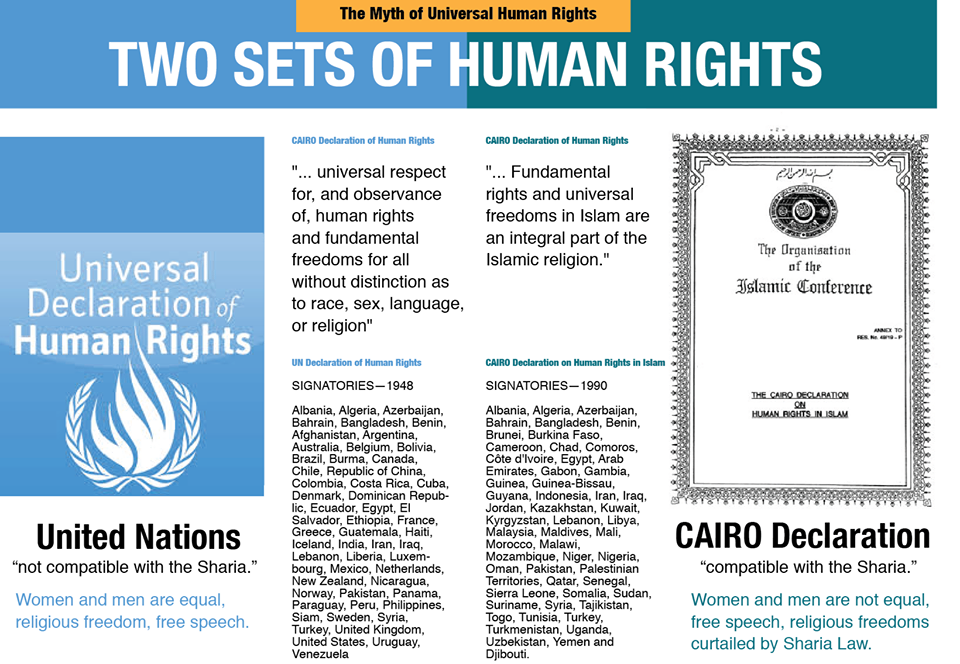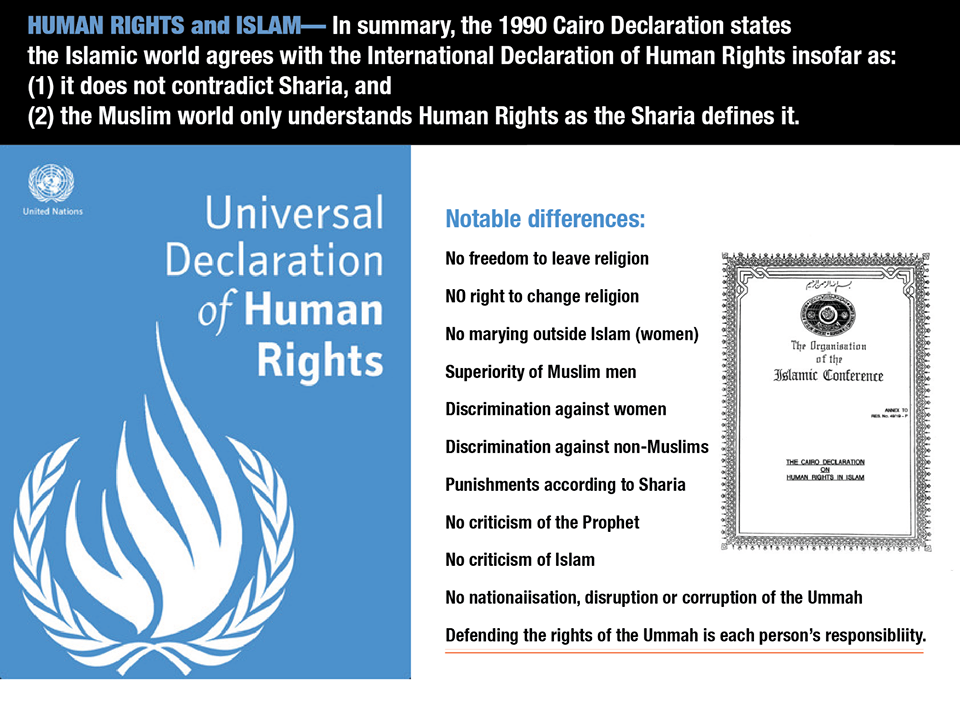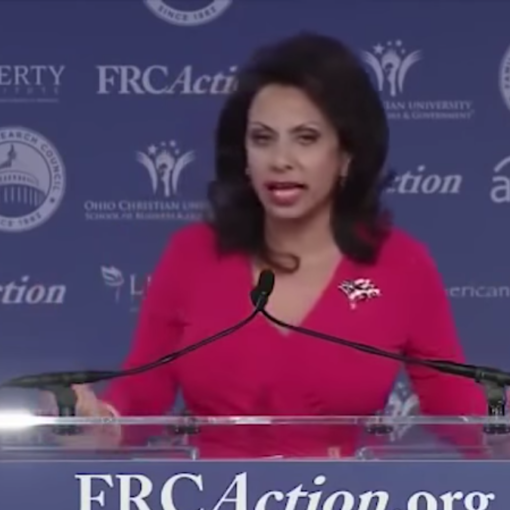HUMAN RIGHTS AND ISLAM
UN Declaration of Human Rights concerns the inherent dignity and equal and inalienable rights of all members of the human family, for all peoples and all nations.
Saudi Arabia, did not sign the UN declaration of Human Rights in 1948, arguing that it violated Islamic law. In 1990 Islamic countries created their own Human Rights Charter called the “The Cairo Declaration of Human Rights in Islam” (CDHRI) and 45 member countries signed. (Now 58 member countries have signed)
Signatories included Brunei, Egypt, Arab Emirates, Indonesia, Iran, Iraq, Jordan, Lebanon, Libya, Malaysia, Pakistan, Palestinian Territories, Qatar, Sudan, Syria, Turkey and Yemen.
Some of the criticisms from the West included:
- Men are equal…women are not.
- Affirms the superiority of men.
- No one is free to change religions
- Women not free to marry outside of religion
- Punishments according to Sharia Law
- Cannot criticise Prophet or Islam
- cannot undermine moral and ethical values or disintegrate”, arouse nationalistic or doctrinal hatred” or commit an “incitement to any form of racial discrimination” within the Ummah.
-it introduces intolerable discrimination against non-Muslims and women.
The CDHRI declares “true religion” to be the “guarantee for enhancing such dignity along the path to human integrity”. It also places the responsibility for defending those rights upon the entire Muslim nation—the “Ummah”.
Association of World Citizens (AWC) said of this declaration
“The Cairo Declaration of Human Rights in Islam is clearly an attempt to limit the rights enshrined in the UN Declaration of Human Rights (UDHR) and the International Covenants. It can in no sense be seen as complementary to the Universal Declaration.
We have two sets of Human Rights agreements operating in different parts of the world at this present time. In Islamic countries the Cairo Declaration of Islamic Human Rights, because it comes from Islamic law, takes precedence over the United Nations Human Rights Charter.
Top recommendations
- Casino Utan Spelpaus
- Casino Non Aams
- Crypto Casino
- Casino Non Aams Sicuri
- Casino Sites Not On Gamstop
- Migliori Casino Online Non Aams
- UK Casino Not On Gamstop
- Gambling Sites Not On Gamstop
- Slots Not On Gamstop
- Non Gamstop Casino Sites UK
- Sites Not On Gamstop
- Online Casinos
- Not On Gamstop Casinos
- Non Gamstop Casinos UK
- オンラインカジノランキング
- Gambling Sites Not On Gamstop
- Casino Online Non Aams
- UK Online Casinos Not On Gamstop
- Melhores Cassinos Online 2025
- Non Gamstop Casinos UK
- Gambling Sites Not On Gamstop
- Online Casino
- Casino Not On Gamstop
- Non Gamstop Casino Sites UK
- Best Non Gamstop Casino
- Crypto Casino
- Casino En Ligne
- Tous Les Sites De Paris Sportifs Belgique
- Tous Les Sites De Paris Sportifs Belgique
- Meilleur Site Casino En Ligne Belgique
- Casino Online Non Aams
- Casino En Ligne Fiable
- Casino En Ligne France
- Nouveau Casino En Ligne France
- Migliori Casino Senza Verifica
- Meilleur Casino En Ligne France
- Casino Fiable En Ligne
- Site De Casino En Ligne
- 토토사이트
- Migliori Casino Online Italia





